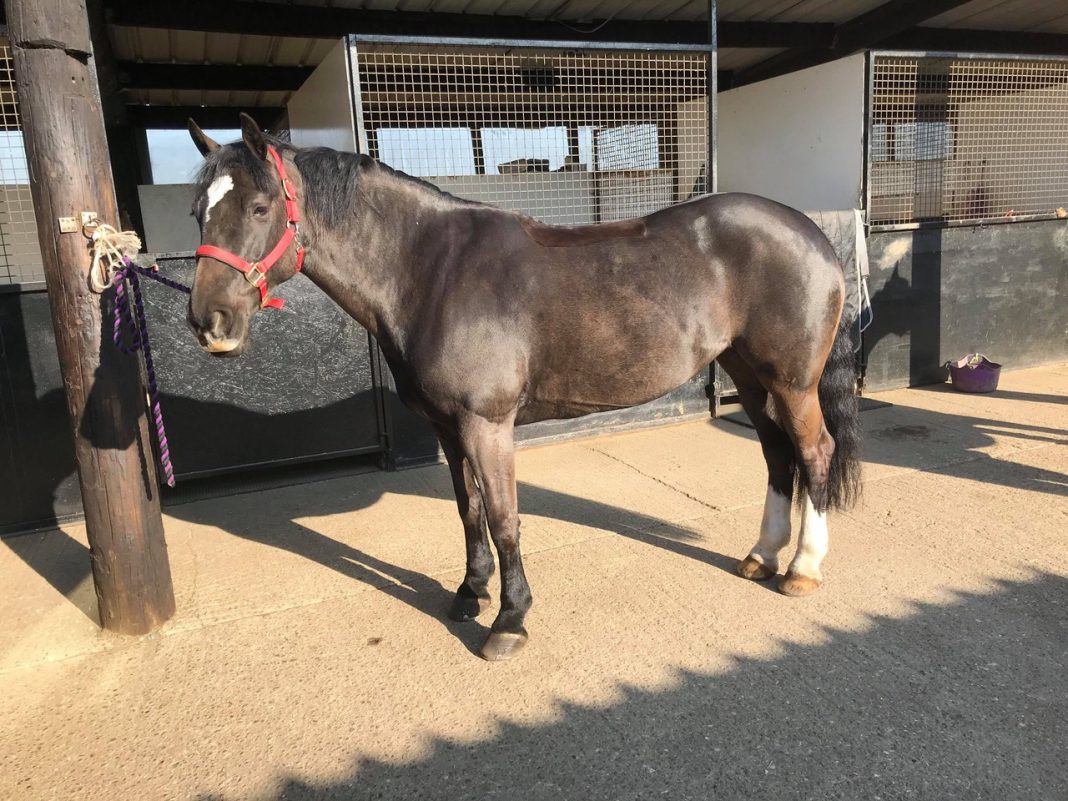Now that the grass is growing in abundance, the risk of weight gain and associated health problems for horses and ponies is significantly increased. SPILLERS™ hopes that by sharing two real life case studies they can help highlight the importance of good weight management to minimise the risk of serious conditions such as laminitis.
“We really hope these case studies will encourage owners to take action to prevent their horses from piling on the pounds this spring,” said Clare Barfoot RNutr, Marketing and Research and Development Director at Mars Horsecare UK, home of the SPILLERS brand.
“Carrying excess weight means carrying increased health risks not only because of the direct weight-associated effects, but also due to the increased risk it poses for certain clinical conditions, in particular laminitis. We hope Bess and Star’s stories will resonate with horse owners and inspire them to keep their horse or pony at a healthy weight all year round.”
Bess’s story
Lorna Purser’s 15.1hh cob mare Bess was in regular work and enjoying Riding Club activities. “She has always been a good doer but although prone to a cresty neck she wasn’t fat,” explained Lorna.
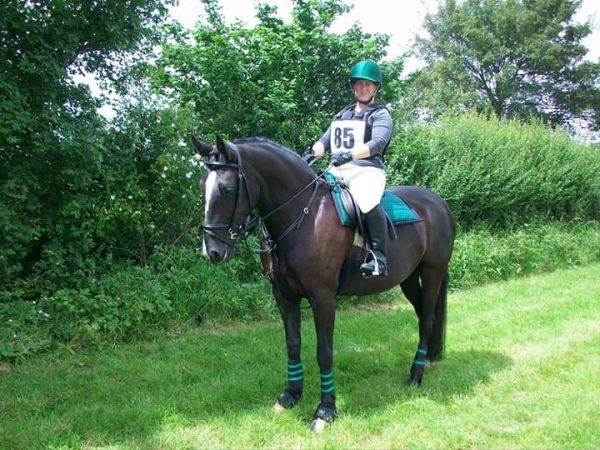
Bess showing her crest
Unfortunately, Bess was kicked in the field and that resulted in fractured splint bones and six months of box rest over the winter. “As Bess was gradually brought back into work I noticed that she wasn’t 100% sound,” continues Lorna. “Lameness investigations and steroid treatment followed. Meanwhile Bess was doing less exercise and gaining more weight.”
The following winter Bess came down with laminitis. With the help of her vet and a SPILLERS nutritionist, Lorna immediately put Bess on a strict management plan. Initially this involved box rest with soaked and weighed hay and a balancer. Over time, restricted grazing could be introduced, her workload was increased gradually, and her bodyweight monitored weekly. Lorna now has a sharer to help keep Bess’s exercise levels high. The mare is body condition scored and weigh taped weekly and is on a low calorie, low starch and high fibre diet plus a balancer designed to supplement a restricted diet to ensure Bess is still getting the nutrients she needs.
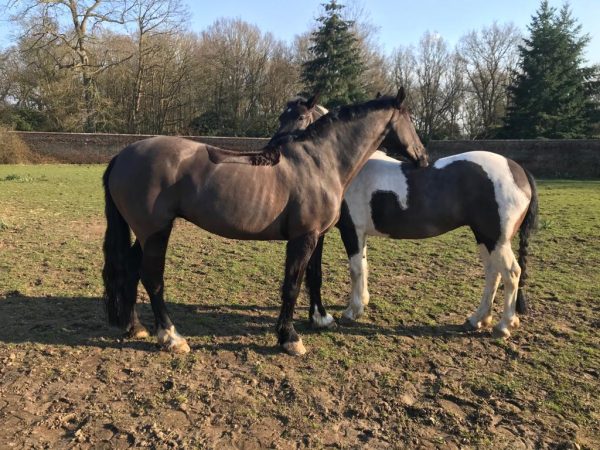
A slimmed down Bess
Star’s story
In December 2018 Jane Witton’s 15hh Welsh Cob Star started to show signs of lameness in her front feet. “My vet diagnosed mild laminitis due to a few factors, one reason being her weight,” said Jane. “I was told to cut down the amount of sugar, starch and calories in her feeds and cut down her hay intake.”
After around three months of soaked hay, smaller feeds and restricted grazing, Star lost around 50kg, had recovered from the bout of laminitis, and received positive feedback from the vets.
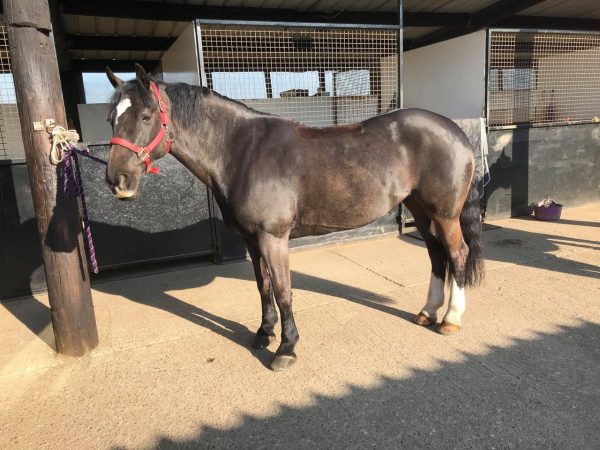
Star before
“I continued to slim her down over the next six months,” said Jane. “When she was weighed by SPILLERS and body condition scored, we actually felt she was now slightly underweight – certainly safer than being overweight but she needed more energy to cope with an increase in workload.”
With advice from SPILLERS, Star was given a fibre and oil-based cube to provide additional energy while still restricting her starch and sugar intake.
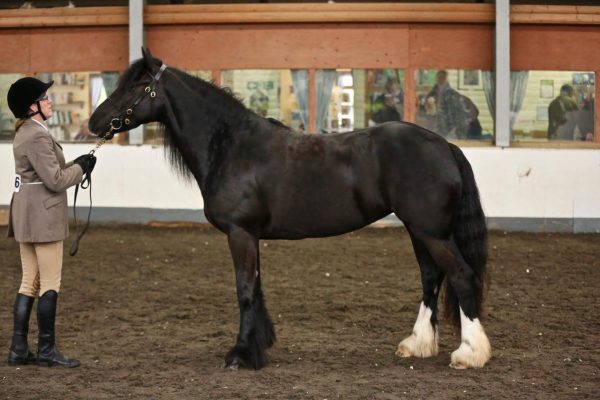
Star after
“We are continuing to monitor her weight and diet to make sure we reduce the risk of her gaining weight and potentially suffering from laminitis again,” said Jane.” My advice to owners is that sometimes being harsh is the kindest thing to do in the long term. Feed smaller amounts more often and get nutritional advice, there’s always someone willing to help.”
SPILLERS tips to prevent weight gain and reduce the risk of laminitis
- Turn out at night: Overnight typically grass will contain less simple sugars and fructan (water soluble carbohydrate) provided the weather is warm enough for the grass to grow.
- Beware of restricting time at grass: Ponies in particular may learn quickly that they need to maximise their time eating and can consume 40% of their daily intake in just three hours!
- Use fewer rugs: Fewer rugs or no rugs at all will encourage a horse to burn off a few extra pounds keeping warm.
- Try a grazing muzzle: A grazing muzzle can reduce intake by up to 80% but it must be properly fitted, allow for drinking and you must let the horse or pony get used to it before leaving it on for long periods although they should never be left on for 24 hours a day. Continue to monitor bodyweight as some horses and ponies may still gain weight while only wearing a grazing muzzle for part of their time at pasture.
- Feed an alternative safe source of forage: For horses and ponies at very high risk of laminitis, consider removing them from pasture altogether and feeding them a suitable forage or forage replacer, such as SPILLERS™ HAPPY HOOF™ or SPILLERS™ HAPPY HOOF™ Molasses Free, both of which are approved by The Laminitis Trust.
- Up the exercise: Regular exercise will help keep a horse’s waistline in check and support a healthy metabolism.
- Keep regular track of your horse’s body condition to keep those excess kilos at bay. Check out the SPILLERS website to find out more about body condition scoring and using a weigh tape. https://www.spillers-feeds.com/weight-management-tools/
- Book a FREE virtual visit from a SPILLERS nutritionist: simply contact SPILLERS by phone or email, provide your horse’s details and your preferred method of contact such as WhatsApp or FaceTime. During your virtual meeting, a SPILLERS nutritionist will guide you through how to condition score your horse or pony, gather information on their current diet, exercise and management routine and help you put together the most suitable feeding plan to help them stay healthy and in shape.
Call the SPILLERS Care-Line for friendly feeding advice on 01908 226626, or e-mail helpline.horsecareUK@effem.com www.spillers-feeds.com
You can read more health features here.


